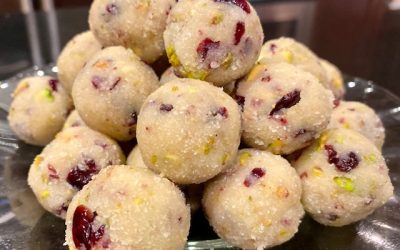1) Diet is the most important aspect of brain health according to David Perlmutter, MD (author of Grain Brain). The Standard (north) American Diet (aka. the SAD Diet, pun intended) not only affects most of us over 40 (if not sooner) to become overweight, lacking in consistent energy / often lethargic, and increasingly poor digestion (and therefore assimilation of nutrients), it is what most affects our brain function. We need to make sure we are getting healthy fat (especially Omega 3) to support our brain health and decrease inflammation, protein to raise an amino acid tyrosine (which prompts the brain to manufacture chemical messengers dopamine and norepinephrine) which promotes energy and alertness, and fibre rich carbohydrates (and prebiotics) found in vegetables and leafy greens that are rich in nutrients like vitamin K, lutein, folate, beta carotene and minerals like magnesium. In fact, including healthy fat, protein, and fibre rich carbohydrates (vegetables and leafy greens) at each meal will keep you satiated and help to balance your blood sugar levels, leaving you feeling your best. In terms of your best brain health, I would also add consistent exercise, quality sleep, and stress management as being a very close second place!
2) Food also plays a huge role in mental health because what we put into our bodies also affects our insulin levels, our hormone balance, and our cravings. It can affect anxiety, memory, and overall mood.
3) Eliminate processed food and eliminate or reduce refined sugar. Also, reducing carbohydrates (except leafy greens and non-starchy vegetables) is beneficial for the majority of people. I have lots of ideas on this that you’ll find in the recipes on my website, and in Karen’s Kitchen – 5 Day Challenge to a More Radiant You! coming out early Jan/20
4) You might consider intermittent fasting. This just means eating in a certain “time window”. The biggest first step is to stop snacking in the evening! For most people, this is their biggest vice and usually has very little to do with actual hunger. A good place to start is 14/10 or 16/8. In the first example you don’t eat for 14 hours and you eat during a 10 hour window. In the second example you don’t eat for 16 hours and you eat during an 8 hour window. So what that looks like is this. In the first example you eat your first meal at 8am and your last meal at 6pm (or whatever 10 hours work for your schedule). In the second example you could have your first meal at 10am and your last meal at 6 pm (8 hour window). There has been a lot of documented research on the benefits of fasting like this. Over the last 30 years or so, we’ve thought that you need to eat small amounts throughout the day, but research in the last few years has shown that there are no benefits to doing this, in fact it is detrimental. We used to think it was to keep the metabolism fired up, but it’s been found that even if snacks are healthy it continually raises insulin levels which can go on to have negative affects. So what are some of the benefits to intermittent fasting? It changes the function of cells, genes and hormones. Your body initiates important cellular repair processes and changes hormone levels. In addition to affecting cellular repair, it affects insulin levels (they drop), gene expression changes (protecting against disease), and the human growth hormone increases affecting fat burning, muscle gain and more. It can also reduce oxidative stress and inflammation in the body. It can also improve heart health by affecting blood pressure, cholesterol, triglycerides, and inflammatory markers. It’s always a good idea to consult with a nutritionist (like myself) or practitioner if you have pre-existing health conditions or eating disorders that may be affected by intermittent fasting.
5) As wonderful as it would be to get all of our nutrients from food, it’s not really possible even with the best eating. Especially in Canada, we can’t get enough Vitamin D from the sun, and most of us are deficient. It’s also very difficult to get enough Omega 3. These are two supplements that everyone would benefit from taking. Additionally, magnesium (which most people are deficient in) is excellent for calming the brain (anti-anxiety).
6) Diaphragmatic breathing (aka deep breathing or abdominal breathing, where your abdomen extends and contracts when you breathe). This breathing engages the parasympathetic nervous system and allows the body to slow down. It’s also beneficial for digestion (and therefore assimilation/taking in of your food’s nutrients). Even in the winter, I step outside and start my day (pajamas and all!) with 3-5 deep abdominal breaths.
7) I recognize that I’m moving further away from food, but my last tip is dealing with negative thoughts, as what we feed our brains (with our own thoughts) affects us more than we realize. For the average women, 80% of our thoughts can be negative. Something I learned in the hospital after dealing with my own severe clinical depression, was the concept of the 3 C’s. It stands for catch, challenge, change. So when you’re having a negative thought, first you need to work on being aware of it = catch it. Acknowledge it and then challenge it. Is it actually true? Then, is it actually true 100% of the time or has there been a time when it wasn’t? In the majority of cases, you’ll find that it’s not 100% true all of the time. Think of something right now that you’ve said to yourself and go through this quick scenario. Then work to change the thought into something more empowering. Example – I never get it right. Has there ever been a time when you got it right? Change it to a more empowering statement. I know I can get this right. That’s just an easy example, but you get the idea. Try to challenge and change your negative thoughts.
Of course there are so many things that you can do to improve your brain health and your physical health. Like drink more water! For most of us, the point is to start small and master one or two things at a time rather than trying to take on a dozen things and then scrapping it all because it’s too overwhelming. Health is an ongoing journey. But if you don’t make time for your wellness, down the road you will be forced to make time for your illness. Cheers to wellness and your most radiant life! ~Karen xo




